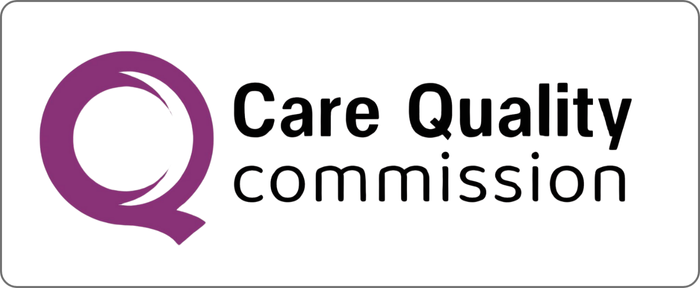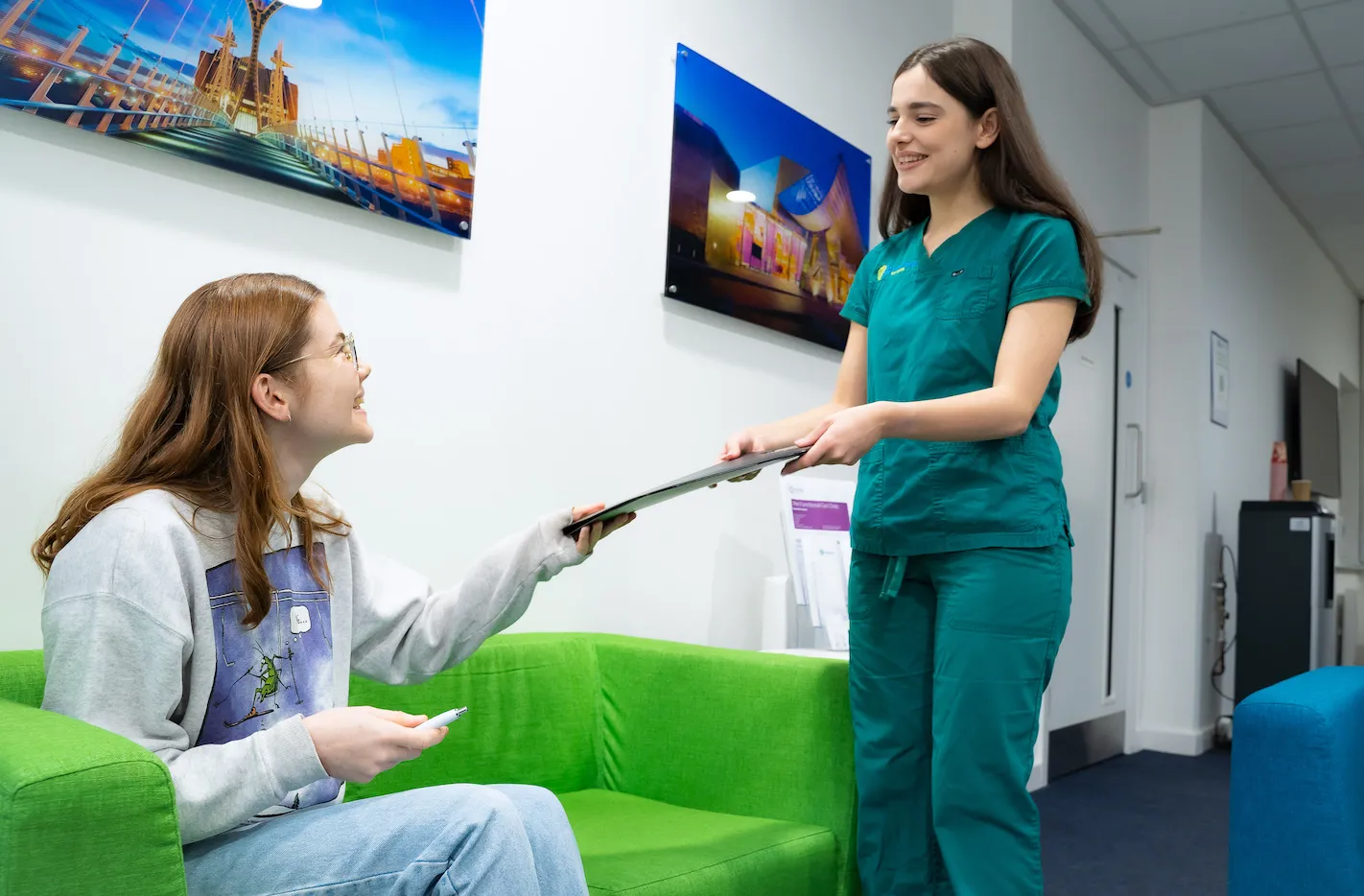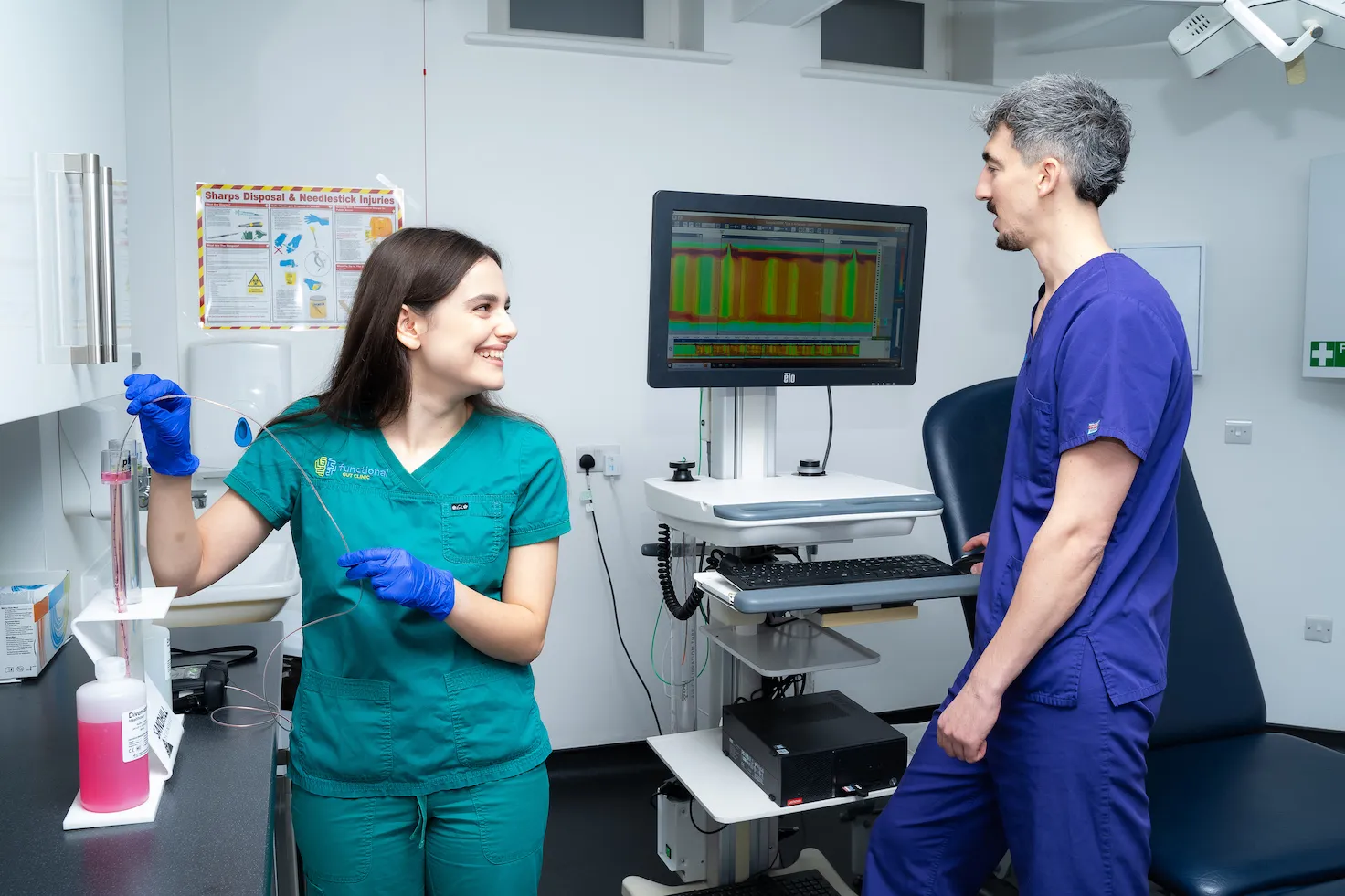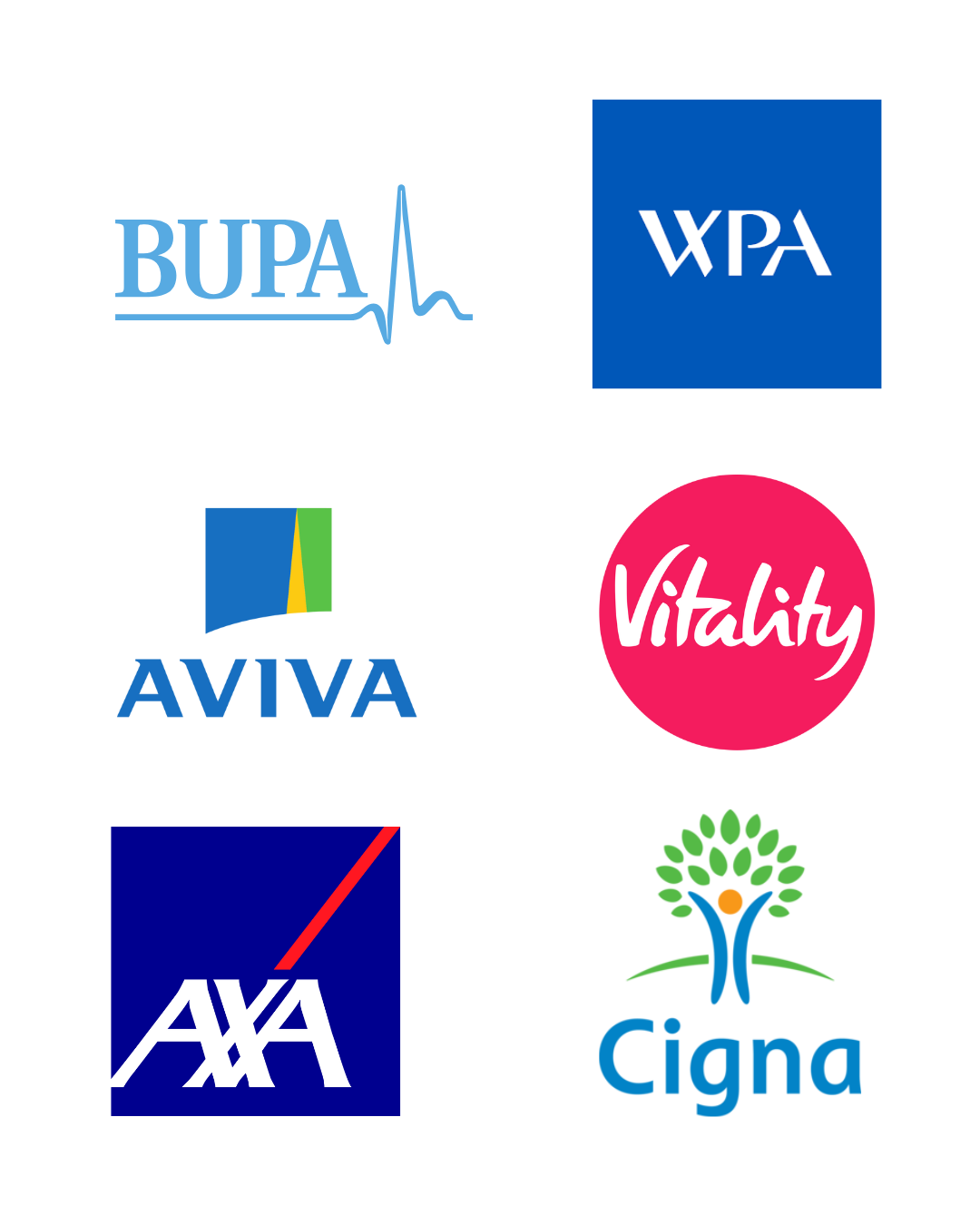Biofeedback and Breathing Therapy
A comprehensive approach to master diaphragmatic breathing, helping reduce your belching (burping) and or bloating symptoms.
ALL TEST ARE ACCREDITED & REGULATED BY



What is diaphragmatic breathing?
Diaphragmatic breathing is a technique that activates your diaphragm—a large muscle located below your lungs. During your appointment, the clinician will guide you through the technique, allow you to practice together, and then discuss when and how long to perform the exercise at home. By mastering diaphragmatic breathing, you may notice improvements in symptoms such as belching (burping), bloating, and rumination. Rumination involves the effortless regurgitation of food or liquid, often shortly after eating, and can be influenced by abnormal breathing patterns and pressure in the abdomen. Regular practice of diaphragmatic breathing can help regulate these pressures and support more comfortable digestion.
Who should consider this treatment?

What happens during your treatment
Usually, just one appointment is needed to learn diaphragmatic breathing.
A specialist GI Physiologist will take a detailed history and guide you through this breathing technique, ensuring you're confident practicing it.
If helpful and you're comfortable, a thin tube may be placed through your nose into your oesophagus to measure pressure changes. This lets you see how your muscles coordinate during the exercise, helping you visualise its benefits.
At the end, you'll get personalised advice on how often, how long, and in what position to practice, plus a leaflet summarising everything covered.
You can return to normal activities right away and continue practicing during your day.
Paying for your test
Self-paying: If you are paying for this test yourself and not through insurance, the cost will be £225.
Insurance coverage
If you have private medical insurance, most companies can cover this for you.

